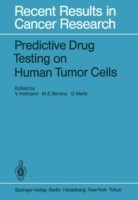16,123,789 books and 3,194,233 eBooks currently available
Free personal pick-up
at 9 locations throughout the Czech Republic
at 9 locations throughout the Czech Republic
Free shipping for purchases over CZK 1,000
Books from all over the world
226 220 816
Call us:
Monday – friday:
08.30 – 12.15
13.00 – 15.45
Newsletter subscription
I am interested in discounts on titles, free shipping and other interesting promotions.



Documents
- Order policy
- Complaints policy
- License agreement (ebooks/audio)
- Integrated management system policy
- Privacy Policy
- Price list
- Cookie information
- Terms and conditions for consumers
- Terms and conditions for schools
- Terms and conditions for businesses, trading companies, state institutions and state organizations
- Code of Ethics





© 2022 MEGABOOKS CZ, spol. s r. o. - foreign literature. Exclusive distributor of Oxford University Press
All prices include VAT
16,123,789 books and 3,194,233 eBooks currently available
Free personal pick-up
at 9 locations throughout the Czech Republic
at 9 locations throughout the Czech Republic
Free shipping for purchases over CZK 1,000
Books from all over the world








Documents
- Order policy
- Complaints policy
- License agreement (ebooks/audio)
- Integrated management system policy
- Privacy Policy
- Price list
- Cookie information
- Terms and conditions for consumers
- Terms and conditions for schools
- Terms and conditions for businesses, trading companies, state institutions and state organizations
- Code of Ethics
Bookshops
226 220 816
Call us:
Monday – friday:
08.30 – 12.15
13.00 – 15.45
Stay in touch with us
Sign up for news, updates and savings.
© 2022 MEGABOOKS CZ, spol. s r. o. - foreign literature. Exclusive distributor of Oxford University Press
All prices include VAT



